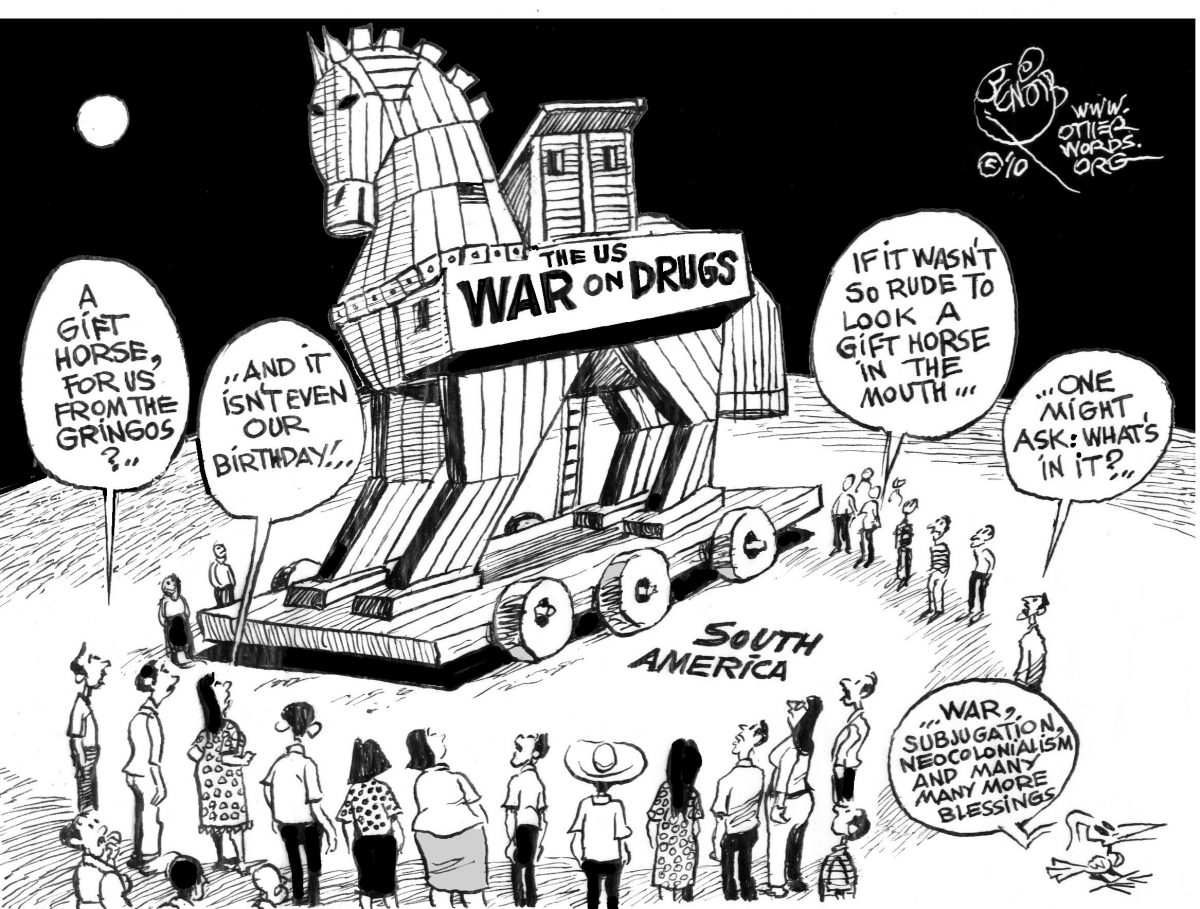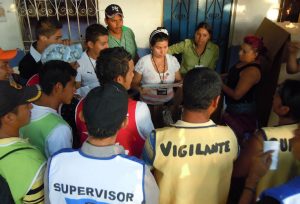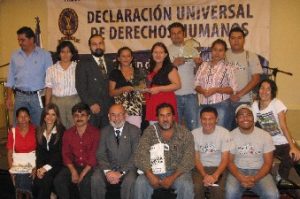Education, Historical Memory, International Meddling, Online Resources
A Summary of El Salvador´s Electoral Context and US Intervention
By Cori Ring, Sister Cities Volunteer
For the United States government, Central America remains a key strategic region for a variety of factors, including US business interests couched in terms of ¨progress and development¨ and the continuing ¨War on Drugs¨ that provides a convenient and important justification for continued US military aid to countries in the region.
Because of the increased gang violence that has come to dominate any foreign discourse on El Salvador in recent years, there is a real threat of increased militarization thanks to the War on Drugs.
In the past year, an economic and human rights aid package called the Millennium Challenge Corporation Fund has been used as leverage to influence US interests in El Salvador. After being inexplicably delayed until after the elections, the fund has been surreptitiously used to press the Salvadoran Legislative Assembly into adopting a Public-Private Partnership law (P3), which is essentially a law that privatizes key government functions. The FMLN representatives were able to salvage the country´s public education system, ANDA (El Salvador´s water system), the penitentiary system, and the health system.
Unfortunately, the fight over privatizing key public services is not over; the conservative right in El Salvador, supported by US ambassador Mari Carmen Aponte, wants to ¨reform¨ the law so as to allow the public university and the water system to be privatized. Only a day after declaring US neutrality in the elections, Aponte suggested that the Millennium Challenge Funds might be delayed again unless the reforms to the P3 law are passed.
Another crucial reality at stake in El Salvador is the anti-mining fight, maintained by the communities most threatened by the water pollution caused by the intensive extractive practices and their allies. Currently there is a temporary ban on extractive mining projects, mostly due to the high levels of organization against those projects. But mining and the pollution it brings continues to be a present threat in El Salvador, especially considering that neighboring Honduras recently lifted its own mining ban, and there are 49 ongoing border projects.




